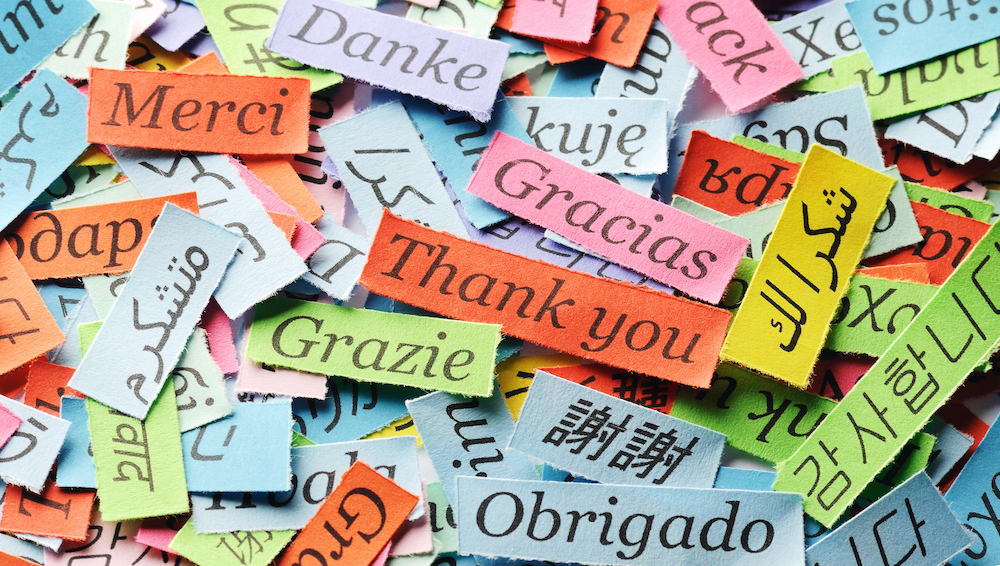Forget fighting English influences: the future is multilingual

The battle against the invasion of English at Dutch universities is a rearguard action: the future is multilingual for all, says Louise O Fresco.
Something peculiar is happening to language in the Netherlands. While the use of English in higher education is being lambasted, multilingualism has become the norm in the big cities. Prick up your ears in the streets or at your local bar and it’s Arabic, Chinese, Hindi, Italian, Polish and Spanish you will hear, and many other languages besides, emanating from the mouths of tourists, students and foreign workers.
Dutch millennials and Generation X don’t speak German or French and their English is fairly basic. Meanwhile, everyday Dutch is bursting with anglicisms. At the same time, general Dutch language skills among schoolchildren are declining, particularly, but not exclusively, in families whose first language is not Dutch.
Outward-looking
So while internationalisation is making strides via the student population, young professionals and social media, some socially and economically disadvantaged groups remain inward-looking. Children whose parents’ command of the language is poor will start life with one hand tied behind their backs.
At the same time, the Dutch language is being mauled in Whatsapp messages and sacrificed by teachers in favour of the execrable English in which they try to explain Multatuli to students, and by talk show hosts who have never read Multatuli and cannot string a decent sentence together if their lives depended on it.
At first glance, these phenomena seem unconnected. But the growing dominance of English, the inroads made by English into our increasingly neglected mother tongue and the lack of integration are symptoms of a linguistic transition into a country in which Dutch is still spoken but is no longer the standard reference.
Polarisation
Hackles will, inevitably, rise. Polarisation will don the guise of protector of the language. Those in favour of the Netherlands, it will be said, are those who defend its mother tongue.
But this battle has already been won. Of course, the Dutch language is closely connected with the history and culture of the kingdom and the language and its literature must be cherished. But it’s not a question of “either or”. The future of the Netherlands is multicultural and multilingual. Of the Dutch population of 17.9 million, some 2.6 million were born abroad. Around two million are second-generation Dutch and have at least one parent with a foreign background.
By the end of this century people of European descent will account for just 10% of the world population, if that, and the Dutch will account for a fraction of the total. The culture of Europe, including the Dutch language and culture, will keep its place – alongside a multitude of other cultures and languages and versions – sophisticated or not – of English. Multilingualism will become the norm.
World views
Speaking languages apart from your mother tongue is such a bonus. One language is no language. Once you learn more than one language you will find your views of the world shift. Languages boost cognitive skills and promote empathy. There is a reason the the recently deceased Mathieu Segers advocated a “polyglot Europe”, as an “investment in cohesion and mutual trust”.
The first step towards a polyglot society is to boost the range of languages at schools, at open universities and in the media. Why do we see so few films in Arabic or Chinese on our screens?
Multilingualism is not just for people with foreign roots but for everyone. If you want to live in the Netherlands, learning Dutch is part of the package. English will be a must for all because of increasing internationalisation. In the future, everyone in the Netherlands will speak at least one other European language apart from their own and English, and preferably Arabic, Hindi or Chinese as well. In short: multilingualism for all!
Louise O Fresco is a scientist, author and columnist. She is also a board member at several institutions, including the Royal Netherlands Academy of Arts and Sciences.
This column was published earlier in the NRC.
Thank you for donating to DutchNews.nl.
We could not provide the Dutch News service, and keep it free of charge, without the generous support of our readers. Your donations allow us to report on issues you tell us matter, and provide you with a summary of the most important Dutch news each day.
Make a donation